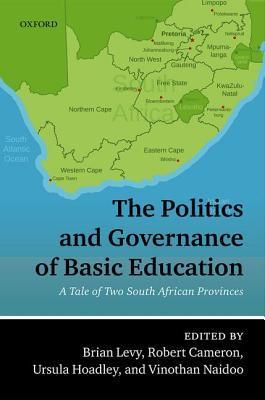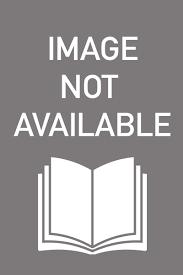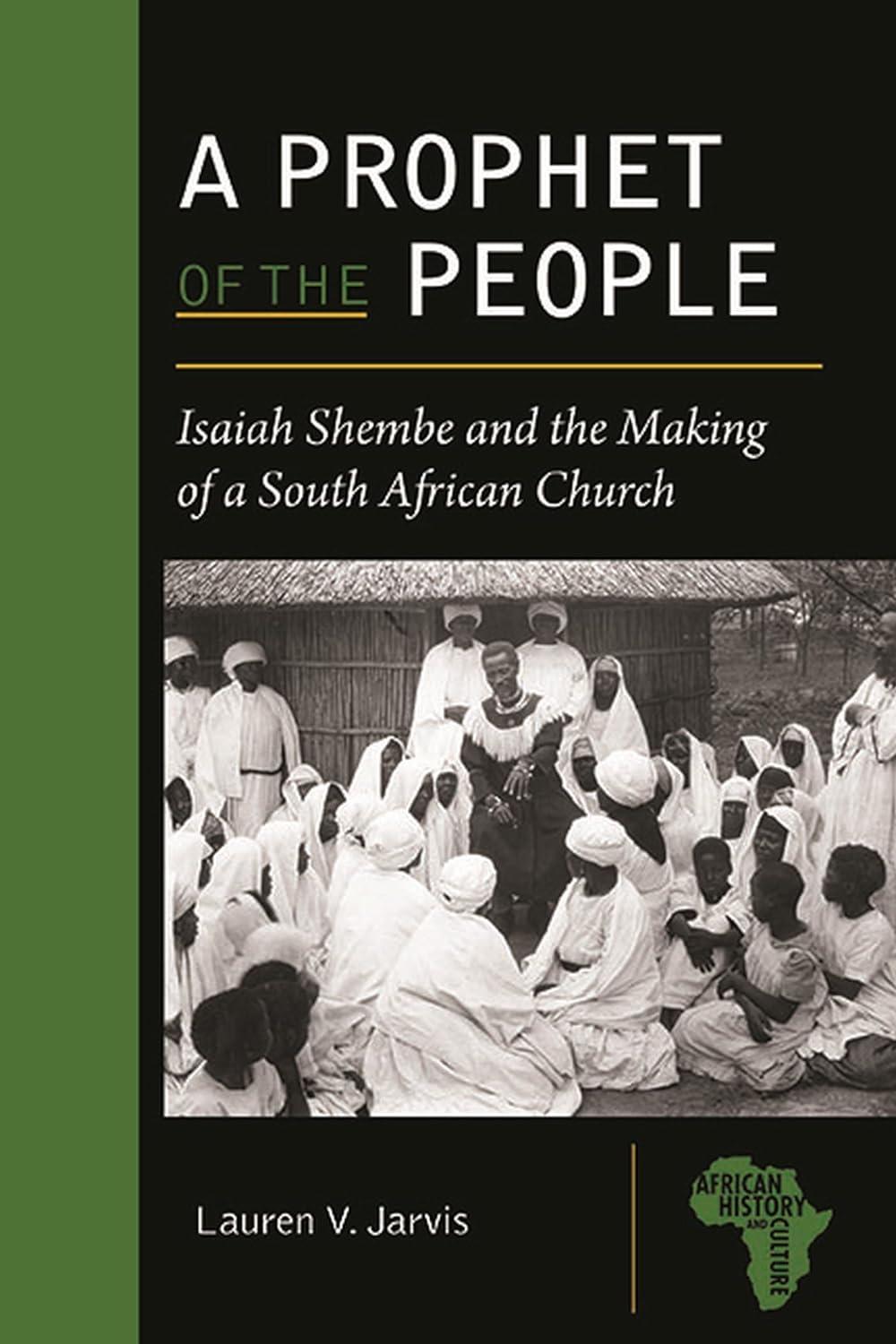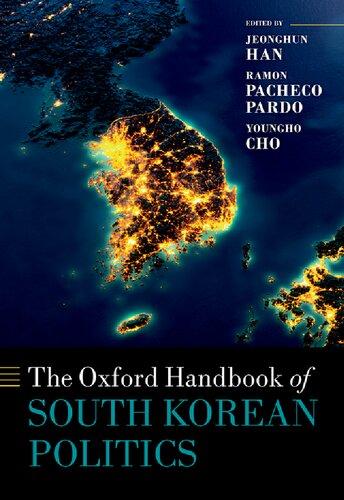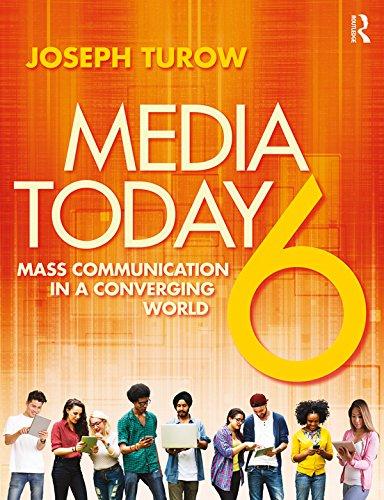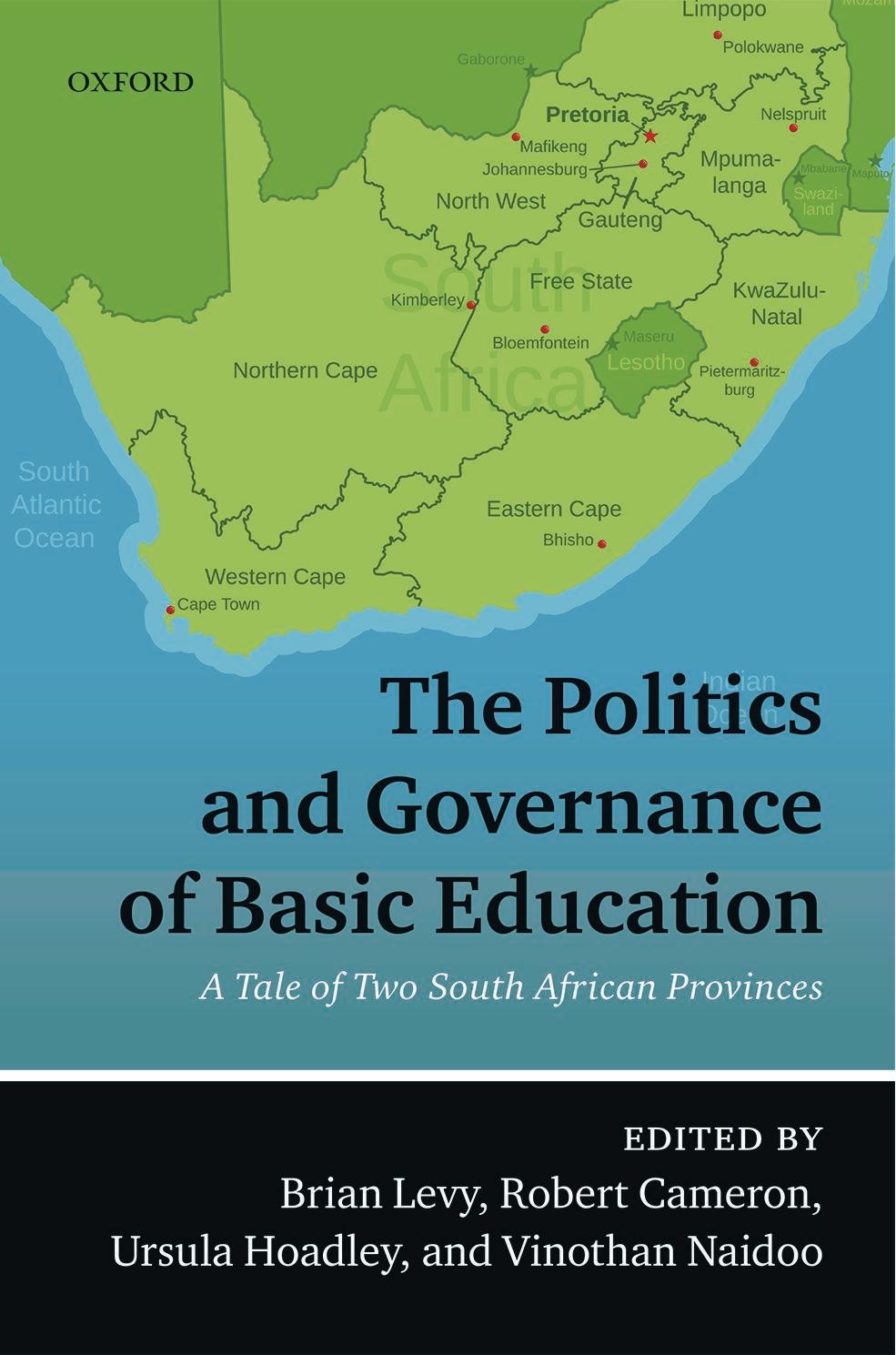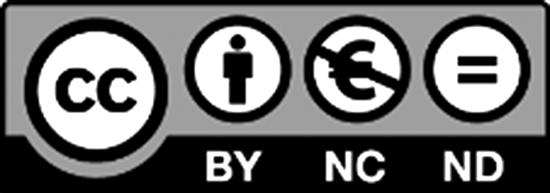ThePoliticsandGovernanceofBasicEducation:A TaleofTwoSouthAfricanProvincesBrianLevy
https://ebookmass.com/product/the-politics-and-governanceof-basic-education-a-tale-of-two-south-african-provincesbrian-levy/
Instant digital products (PDF, ePub, MOBI) ready for you
Download now and discover formats that fit your needs...
A Tale of Two St■pas: Diverging Paths in the Revival of Buddhism in China Albert Welter
https://ebookmass.com/product/a-tale-of-two-stupas-diverging-paths-inthe-revival-of-buddhism-in-china-albert-welter/
ebookmass.com
A Prophet of the People: Isaiah Shembe and the Making of a South African Church Lauren V. Jarvis
https://ebookmass.com/product/a-prophet-of-the-people-isaiah-shembeand-the-making-of-a-south-african-church-lauren-v-jarvis/
ebookmass.com
The Oxford Handbook of South Korean Politics Jeonghun Han
https://ebookmass.com/product/the-oxford-handbook-of-south-koreanpolitics-jeonghun-han/ ebookmass.com
Awaken: The Path to Purpose, Inner Peace, and Healing
Rajendra Sisodia
https://ebookmass.com/product/awaken-the-path-to-purpose-inner-peaceand-healing-rajendra-sisodia/ ebookmass.com
How to Catch a Dragon Adam Wallace https://ebookmass.com/product/how-to-catch-a-dragon-adam-wallace/
ebookmass.com
Practical Electronic Design for Experimenters 1st Edition
Louis Frenzel
https://ebookmass.com/product/practical-electronic-design-forexperimenters-1st-edition-louis-frenzel/
ebookmass.com
Le concept Mulligan de thérapie manuelle Toby Hall
https://ebookmass.com/product/le-concept-mulligan-de-therapiemanuelle-toby-hall/
ebookmass.com
Stocks for the Long Run: The Definitive Guide to Financial Market Returns & Long-Term Investment Strategies, 6th Edition Jeremy J. Siegel
https://ebookmass.com/product/stocks-for-the-long-run-the-definitiveguide-to-financial-market-returns-long-term-investment-strategies-6thedition-jeremy-j-siegel/ ebookmass.com
Media Today: Mass Communication in a Converging World 6th Edition, (Ebook PDF)
https://ebookmass.com/product/media-today-mass-communication-in-aconverging-world-6th-edition-ebook-pdf/
ebookmass.com
https://ebookmass.com/product/expertddx-musculoskeletal-2nd-editionkirkland-w-davis-2/
ebookmass.com
ThePoliticsandGovernanceofBasicEducation ThePoliticsandGovernance ofBasicEducation ATaleofTwoSouthAfricanProvinces Editedby BrianLevy,RobertCameron,UrsulaHoadley, andVinothanNaidoo
GreatClarendonStreet,Oxford,OX26DP, UnitedKingdom
OxfordUniversityPressisadepartmentoftheUniversityofOxford. ItfurtherstheUniversity’sobjectiveofexcellenceinresearch,scholarship, andeducationbypublishingworldwide.Oxfordisaregisteredtrademarkof OxfordUniversityPressintheUKandincertainothercountries
©OxfordUniversityPress2018
Themoralrightsoftheauthorshavebeenasserted
FirstEditionpublishedin2018
Impression:1
Somerightsreserved.Nopartofthispublicationmaybereproduced,storedin aretrievalsystem,ortransmitted,inanyformorbyanymeans,forcommercialpurposes, withoutthepriorpermissioninwritingofOxfordUniversityPress,orasexpressly permittedbylaw,bylicenceorundertermsagreedwiththeappropriate reprographicsrightsorganization.
Thisisanopenaccesspublication,availableonlineanddistributedunderthetermsofa CreativeCommonsAttribution – NonCommercial – NoDerivatives4.0 Internationallicence(CCBY-NC-ND4.0),acopyofwhichisavailableat http://creativecommons.org/licenses/by-nc-nd/4.0/.
Enquiriesconcerningreproductionoutsidethescopeofthislicence shouldbesenttotheRightsDepartment,OxfordUniversityPress,attheaddressabove
PublishedintheUnitedStatesofAmericabyOxfordUniversityPress 198MadisonAvenue,NewYork,NY10016,UnitedStatesofAmerica
BritishLibraryCataloguinginPublicationData
Dataavailable
LibraryofCongressControlNumber:2018935425
ISBN978–0–19–882405–3
Printedandboundby CPIGroup(UK)Ltd,Croydon,CR04YY
LinkstothirdpartywebsitesareprovidedbyOxfordingoodfaithand forinformationonly.Oxforddisclaimsanyresponsibilityforthematerials containedinanythirdpartywebsitereferencedinthiswork.
ForewordI Whatisdistinctiveaboutboththiscompellingbookandarelated(forthcoming) OUPcollection1 (alsobasedonresearchconductedwiththeEffectiveStates andInclusiveDevelopmentResearchCentre)istheinsistencethatthecrisis ofschoolingwithoutlearningisfundamentallyachallengeofpoliticsand governance,andthattheroutesforwardmustinvolvechangesinthese interrelatedrealms.
Thisemphasisonpoliticsandgovernanceresonateswithwiderdebates withininternationaldevelopmentandpolicy.Indeed,theanalysisand findingspresentedinthisbookoperateatthecutting-edgeofabroaderdiscourse ondevelopmentinthetwenty-firstcentury,stretchingfarbeyondthe fieldof education.Bybringinghigh-leveldebatesaroundtheroleofinter-elitebargaininginshapinglong-termdevelopmenttrajectoriesintodirectcontact withpressingissuesofservicedelivery,itstartstobreachwhatMerileeGrindle termsthe ‘missingmiddle’ ofthenewlyemerginggovernanceagenda.
Thebook’spresentationofamethodthatenablesustoidentifyandexplore howdifferentkindsofreformunfoldindifferentwaysindifferenttypesof contextsmarksaconsiderableadvanceonthenow-anodyneinsistencethat ‘contextmatters’.Therigorouscomparisonbetweentwoprovinceswithin SouthAfricaillustratesthepowerofthemethod,andoffersanapproach thatcanbeborrowedformanyothersuchstudies.Importantly,thisapproach usescomparisonsbetweentheWesternCapeandothersettingstorevealthe limitationsofsystemsthatrelytooheavilyonhierarchicalaccountability mechanismsandbureaucraticprocedures,asopposedtomore flexiblesystems forgoverningserviceprovision.
BrianLevy,theleadeditorandprincipalinvestigatorbehindtheresearchon whichthisbookisbased,hasalreadycontributedmuchtotheprojectof rethinkingthepoliticsofdevelopmentanddevising ‘best-fit’ governance solutionsforparticulartypesofcontext,notleastthroughhis2014book WorkingwiththeGrain. Thisnewworkbuildsdirectlyonthiswiderproject
1 ThePoliticsofEducationinDevelopingCountries:FromSchoolingtoLearning?,editedbySam HickeyandNaomiHossain,willbepublishedbyOUPin2018.Thebookcentresonsixcountry casestudies,andincludesachapteronSouthAfricabyBrianLevyandcolleagues.
bothbybringingitrightdowntothefrontlineofservicedelivery,andalsoby furtherprovingthebenefitsof ‘thinkingandworkingpolitically’ forallof thoseconcernedwithunderstandinghowinjusticessuchasthelearningcrisis occurandhowtheymightbechallenged.
ProfessorSamHickey ProfessorofPoliticsandDevelopmentattheUniversityofManchester,andJoint DirectorofResearchattheEffectiveStatesandInclusiveDevelopmentResearch Centre.
ForewordII Threefeaturesofthisbookmakeitavaluablecontributiontotheresearch literatureonthegovernanceofschoolsandthesystemswhichsustainthem. First,itengagesinground-clearingscholarshipwhichdescribesthemyriad changeswhichhaveoccurredinSouthAfricasincetheadventofdemocratic rulein1994.Theseincludearadicalrestructuringoftheschoolsystemandthe wayitis financedandgoverned,nofewerthanthreewavesofcurriculum reform,andacompleteoverhaulofthewayinwhichteachers’ workis regulated.In ‘steady-state’ countries,suchdevelopmentsevolvedoverthe spanofacenturyorso;inSouthAfricatheyhavebeencrammedintoa tumultuousone-quarterofthistime.Intrackingthedetailsofthesechanges, manyofthechaptersofthisvolumeprovideaservicewhichwillbeof inestimablevaluetoscholars,notonlyinSouthAfricabuttostudentsofsocial changeeverywhere.
Thesecondfeatureofthebookwhichcommandsattentionisthetheoreticallensdevelopedtoexamineschoolgovernance.Breakingfreeoftheeither/ orapproach,whichpitsthepowerofcentralizeddecision-makingagainst thedemocraticadvantagesoflocalcontrol,thebookispremisedonamore complexandproductiveboth/andperspective.Twosetsofaxesdefinethis terrain.Technocratic,impersonalrulesof ‘bestpractice’ areintensionwith politics,patronageandnegotiation;predatoryelitescompetewithcitizens pursuingtheirrightstoafairshareofsocialgoods.
Thethirdfocus,andtheheartofthebook,putsthe firsttwoelementsin conversation.Thebookisanextendedreflectionontheforcesatplaybetween top-downhierarchicalprocessesandhorizontalparticipationbylocalactors inthegovernanceandmanagementofschools.Oneaftertheother,successive chaptersexaminetheinteractionsbetweencontextualcomplexities,policy frameworksandinstitutionalcompetenciesintwoverydifferentprovincial settings:theWesternCapeanditseasternneighbour,thetwomajorcomponentsoftheCapeProvincepriorto1994.Thebook’scombinationofmacroandmicro-perspectivesenablesnovellinkagestoemergethatareinvisible fromeitherpointofviewalone.Thetheoreticalframeworkprovidesimportantinsightsintotheunpredictabletrade-offsbetweenpragmaticpoliticsand idealisticcivilservicereforminitiatives.
Avarietyofmethodologies socio-political,econometric,system-level analysesofmanagementpracticesandmicro-levelcasestudiesofinstitutional leadership producenoeasyanswers.Thisinitselfisanimportantresult, indicatingjusthowcomplextheseprocessesareandhowstubbornlythey resistformulaicsolutions.Virtuouscyclesofexemplaryinstitutionalleadershipthriveinthemostunpromisingprovincialcircumstances.Exemplary systemicprocessesarefrustratedbyambitiouslocal-levelbit-players.Through itallthetheoryremainsrobustand,intheend,themostimportantcontributionofthebookistoprovidenovelwaysofthinkingaboutpublicleadership;itenablesnewperspectiveswhicharelikelytoproducefreshinsights wellintothefutureaswecontinuetograpplewiththisrecalcitrantproblem.
DrNickTaylor SeniorResearchFellowatJETEducationServices,andformerlyCEOoftheorganization.Between2012and2015,hewassecondedtoSouthAfrica’sDepartmentof BasicEducationtoestablishandleaditsNationalEducationEvaluationDevelopmentUnit.
Acknowledgements Thisbookistheproductofasustainedcollaborationacrossdisciplines;our teamincludespublicadministrationspecialists,educationalists,economists andpoliticalscientists.Cross-disciplinaryworkisneverstraightforward;the processofproducingthisbookhasbeenmorecollegialand(wehope)more productivethanmanysuchendeavours.
Theprojectwouldnothavebeenundertakenwithoutthe financial,intellectualandmoralsupportoftheEffectiveStatesandInclusiveDevelopment (ESID)ResearchCentre,aglobalpartnershipbasedattheUniversityofManchesterandfundedbytheUKgovernment’sDepartmentforInternational Development.WethankespeciallySamHickey,JuliaBrunt,KunalSen,David HulmeandothersintheESIDteamfortheirsustainedengagement.
AttheUniversityofCapeTown(whereweallarefaculty),wearegratefulto theNelsonMandelaSchoolofPublicGovernanceforhostingtheproject, andtotheSPADE(SchoolsPerformingAboveDemographicExpectations) project,housedintheSchoolofEducation,forsharinggenerouslyits findingsandexperience.Wealsoexpressoursincerethankstoourresearch collaboratorsfrompartnerinstitutions,suchasRhodesUniversity,fortheir invaluablecontributions.
WeacknowledgethevaluableongoingencouragementprovidedbyCrain SoudienandAlanHirsch.Wealsothankfortheirfeedbacktheparticipantsat anApril,2016workshopatUCT’sGraduateSchoolofBusinessatwhichwe sharedourpreliminary findings,andalsotheanonymousreviewersofthe ESIDworkingpapersthatcomprisethebasisofmuchofthisbook.
Thankstothemanyorganizationsandindividuals(inschools,andwithin provincialandnationalgovernment)whoopenedtheirdoorsandsharedtheir insightsintotheongoingsuccessesandchallengesofimprovingeducation outcomesinSouthAfrica.Wehopethatthisworkcontributesinsomemeasure tothatvitalandnoblepurpose.
April2018
BrianLevy
RobertCameron
UrsulaHoadley
VinothanNaidoo
Contents ListofFigures xiii
ListofTables xv
ListofContributors xvii
PartI.FramingtheIssues 1.ImprovingBasicEducation TheGovernanceChallenge3 BrianLevy
2.TheTransformationofSouthAfrica’sSystemofBasicEducation27 LuisCrouchandUrsulaHoadley
3.EducationPolicymakingatNationalLevel:ThePoliticsof MultiplePrincipals61 RobertCameronandVinothanNaidoo
PartII.ProvincialGovernanceandPoliticsofEducation
4.ProvincialGovernanceofEducation TheWestern CapeExperience85 RobertCameronandBrianLevy
5.ProvincialGovernanceofEducation TheEastern CapeExperience121 ZukiswaKota,MonicaHendricks,EricMatambo,and VinothanNaidoo
6.ExplainingtheWesternCapePerformanceParadox:An EconometricAnalysis149 GabrielleWills,DebraShepherd,andJaneliKotzé
7.ContextandCapability:ATaleofTwoBureaucracies179 BrianLevy,RobertCameron,andVinothanNaidoo
8.CaseStudiesofSchool-LevelGovernanceDynamicsinthe WesternCape201
UrsulaHoadley,BrianLevy,LawuleShumane,andShellyWilburn
9.CaseStudiesofSchool-LevelGovernanceDynamicsinthe EasternCape227
BrianLevyandLawuleShumane
10. ‘AllforEducation’—MeetingtheGovernanceChallenge256
BrianLevy
Index
ListofFigures 1.1.Thegovernanceofeducation amulti-levelframework14
1.2.Governanceinteractions19
2.1.Schoolefficiencybyracialdepartmenttowardsendofapartheid32
2.2.Educationalsuccess,byrace,asproportionofpopulation34
2.3.ComparativeperformanceofSouthAfricaonaccesstoeducation35
2.4.Fundingforeducation,SouthAfricaandcomparatorcountries41
2.5.Accesstosecondaryeducation,SouthAfricaandcomparatorcountries42
2.6.Compositionandrelativesizeofenrolmentbylevel,SouthAfrica andcomparatorcountries43
2.7.Changesininequalitycurvesfordistributionofpublicresourcing ofpublicschools45
2.8.SouthAfricaasanefficiencyoutlierinTIMSSandPIRLS50
2.9.KenyaaspositiveoutlierinSACMEQ51
2.10.SouthAfricaasaninequalityoutlier,SACMEQdata53
3.1.SA’seducationstakeholder ‘triangle’ 62
3.2.PerformancemanagementcontinuuminSouthAfrica’sbasic educationsector66
4.1.Thelongrouteofaccountability88
A4.1.MPATassessmentprocess115
5.1.Personalized/negotiatedmodeofgovernanceintheEasternCape educationsector122
5.2.Reportedcasesof financialmisconductintheECPG131
6.1.Averagecountryandregiontestperformanceagainstspendingper primaryschoollearner150
6.2.Mathematicsandliteracyscoresforgrade6studentsbystudent socio-economicstatus(measuredinlogofconsumptionpercapita) forallSouthAfricanprovinces167
6.3.Literacyandmathematicsscoresforgrade6studentsbystudent socio-economicstatus(measuredinlogofconsumptionpercapita) fortheWesternCape,Gauteng,andKenya168
8.1.School-levelgovernanceinteractions202
9.1.Governanceinteractions228
10.1.Governanceoptionsforimprovingschooloutcomes259
10.2.Allcasestudyschoolsexperiencedachangeinleadership265
10.3.Theeducationsystem271
10.4.Kenya’seducationaloutcomesincomparativeperspective280
ListofTables 1.1.APublicGovernanceTypology16
1.2.HowContextInfluencesOutcomes AMulti-LevelAnalysis18
2.1.PublicOrdinarySchoolExpenditure,perpupil,byprovince1990–2004, anditsinequality,nationalbaseof100ineachperiod44
2.2.InequalitydataforSouthAfricaandothercountries,TIMSS,variousyears52
2.3.InequalitydataforSouthAfricaandothercountries,PIRLS201652
3.1.SomestepsinshapingSouthAfrica’snationalperformance managementsystem64
3.2.Establishingagovernanceframeworkfortheeducationsector65
3.3.National-levelpolicymakingforbasiceducationinSouthAfrica76
4.1.GovernanceofEducation ContrastingPoliticalSettlements87
4.2.PoliticalControloftheWesternCapeProvincialGovernment: 1994–201489
4.3.PopulationDistribution,byEthnicBackground:1996Census89
4.4.SuperintendentsGeneral:WCED1994–201494
4.5.MPATAssessmentsofOverallPerformanceforSouthAfrica’s EducationDepartments99
4.6.SACMEQBenchmarkI:WesternCapeAchievementinGrade6 Mathematics,RelativetoOtherSouthAfricanProvinces,2007101
4.7.NationalSeniorCertificateResults,Full-TimeStudents(2008)102
4.8.SACMEQBenchmarkII:WesternCapeMathematicsScoresRelative toOtherAfricanCountries,2007102
4.9.NationalSeniorCertificateResults,Full-TimeStudents(2015)104
4.10.Grade3,6and9systemictests numeracypassrates(passsetat50%)104
A4.1.MPATAssessmentofEducation:StrategicManagement116
A4.2.MPATAssessmentofEducation:GovernanceandAccountability116
A4.3.MPATAssessmentofWCED:HumanResourcesManagement117
A4.4.MPATAssessmentofWCED:FinancialManagement117
A4.5.MPATAssessmentofWCED:OverallScoreoftheEducationDepartment118
5.1.GovernanceofEducationintheEasternCape122
5.2.LeadershipChronologyintheECDoE128
6.1.SACMEQIII:WesternCapeMathematicsScoresRelativeto OtherAfricanCountries152
6.2.TIMSSPerformance ProvincialComparisonsAcrossYears153
6.3.Matriculants(NSCpasses)byProvinceRelativetotheYouthPopulation AccordingtotheGeneralHouseholdSurvey 154
6.4.MultivariateregressionofSACMEQIIIGrade6mathematicsz-scores usingpropensityscoreweights 158
6.5.MultivariateregressionofSACMEQIIIGrade6literacyz-scoresusing propensityscoreweights 160
6.6.SelectedSACMEQmeasuresofmathematicsteacherand classroomcharacteristics 163
6.7.SomeSACMEQmeasuresofschool-levelgovernance 164
6.8. ‘WesternCape’ effectwhencomparingstudentsattendingschools withsimilarrelativevaluesofschoolsocio-economicstatus 169
A6.1.ControlVariablesforSACMEQCountriesandSouthAfricanProvinces173
7.1.MPATAssessmentsofSouthAfrica’sEducationDepartments
7.2.TheWesternCape’sSACMEQScoresinComparativePerspective
7.3.CharacterizingEducationBureaucracies TwoContrastingPatterns183
7.4.TwoDivergentContexts
7.5.DistributionofSocialClassesinSouthAfrica,2014
7.6.Grade6MathematicsSACMEQScores The ‘WesternCape’ Effect194
8.1.SystemicTests PercentageofCohortthatMeetstheGrade3 ProficiencyStandard
9.1.TrendsinLearnerEnrolment,2008–15(numberoflearners)
9.3.StakeholderEngagement
ListofContributors RobertCameron isProfessorofPublicAdministrationintheDepartmentofPolitical Studies,UniversityofCapeTown.Hehaspublishedaroundninetyjournalarticlesand bookchaptersonlocalgovernment,publicadministration,andpublicservicereform. Hehasalsowrittenonebookandco-editedtwobooks.HeisaSeniorFellowatthe GlobalCitiesInstitute,UniversityofToronto.HewasamemberoftheSouthAfrican MunicipalDemarcationBoard(1999–2004),whichdemarcatednon-raciallocalgovernmentboundariesforthedemocraticSouthAfrica.
LuisCrouch isaSeniorEconomistintheInternationalDevelopmentGroupatthe ResearchTriangleInstitute.Hespecializesineducationpolicy,decentralized finance, politicaleconomyofreform,educationstatistics,planning,andprojections.Hehas previouslyworkedattheWorldBankandattheGlobalPartnershipforEducation (GPE).HeworkedasanadvisortoSouthAfrica’seducationsectorinregardtofunding andgovernancereforms,Egypt’sdecentralizationexperiments,anddecentralization andotherpolicyreformsinPeruandIndonesia.Hehasworkedinmorethantwentyfivecountriesinathirty-yearcareerineducationandsocio-economicdevelopment, andistheauthorofmanyreports,technicalpapers,andbooks.
MonicaHendricks istheDirectoroftheInstitutefortheStudyoftheEnglishesof Africa,RhodesUniversity.Sheteachesandco-ordinatesanundergraduatecoursefor teachersofEnglishasanadditionallanguage,mostlyinruralschools,anddoesgraduatesupervision.Shehasalong-standinginterestinchildren’swritingabilityandsense ofself,andhowteachereducationcanimprovepedagogicalwritingpractices.Recent publicationsincludeeditingandcontributingtwochaptersto ISEA1964–2014 A ResearchInstituteServingPeople (2016).
UrsulaHoadley isAssociateProfessorintheSchoolofEducationattheUniversityof CapeTown.Herextensivepublishedresearchexplorestherelationbetweeneducation andsocialstratification,andthedifferentialsocialandacademicoutcomesengendered througheducationalprocesses,withafocusonpedagogy,curriculumandschoolorganisationattheprimarylevel.Ursulaparticipatesinmultipleprofessionaleducationassociations,foraandboards,includingSouthAfrica’sMinisterialReviewCommitteeof2009 whichledtotherevisionoftheoutcomes-basednationalcurriculum.Herbook, Pedagogy inpoverty:20yearsofcurriculumreforminSouthAfrica,waspublishedbyRoutledgein2018.
ZukiswaKota currentlyheadsuptheMonitoringandAdvocacyProgrammeofthe PublicServiceAccountabilityMonitor(PSAM)atRhodesUniversity,SouthAfrica.She hasdevelopedexpertiseinpromotingsocialjusticeandinparticularadvocatingforthe implementationoflawandpolicypromotingtherighttoeducation.Herotherareasof
workincludemonitoringofresourcemanagementinthedeliveryofpublicservices.An environmentalsciencegraduate,herinterestsrangefromfoodsecurityandethnobotany,toEcoliteracyandearlychildhooddevelopment.
JaneliKotzé isaresearcherattheSouthAfricanDepartmentofBasicEducation.Shehas beeninvolvedinevaluationsofnationaleducationpolicyandprojectsrelatedtocrossnationalcomparisonsofeducationalachievement,earlychildhooddevelopmentand learningtrajectoriesofchildreninpoorerschoolingcontexts.HerPhDinEconomics focusedontheSouthAfricaneducationcrisisandlearninginequalities.
BrianLevy isProfessorofthePracticeofInternationalDevelopment,Schoolof AdvancedInternationalStudies,JohnsHopkinsUniversityinWashingtonDCand AcademicDirector,NelsonMandelaSchoolofPublicGovernance,UniversityofCape Town.HeworkedattheWorldBankfrom1989to2012.Hisbooksinclude Workingwith theGrain:IntegratingGovernanceandGrowthinDevelopmentStrategies (OxfordUniversity Press,2014)and(co-editedwithSahrKpundeh) BuildingStateCapacityinAfrica (World BankInstitute,2004).HecompletedhisBA(Hons)attheUniversityofCapeTownin 1976,andaPh.D.ineconomicsatHarvardUniversityin1983.
EricMatambo istheTrainingCoordinatoratthePublicServiceAccountabilityMonitor(PSAM)atRhodesUniversity.Hefacilitatesandco-ordinatestheFundamentalsof SocialAccountabilityMonitoringcertificateshortcourserunbytheRegionalLearning ProgrammeofPSAM.Oneofhisareasoffocushasbeenpublicintegritymanagement withinthepublicresourcemanagementframework.Ericwasaschoolteacherinthe EasternCapebeforestartingatPSAMin2009.
VinothanNaidoo isSeniorLecturerintheDepartmentofPoliticalStudies,University ofCapeTown.HisresearchonSouthAfricanpolicyanalysisspansvarious fields, includingeducation,publicworks,agricultureandwaterandsanitation.Healsowrites onvariouspublicadministrationsubjectssuchasinstitutionalco-ordination,public sectorreform,political-administrativerelations,andinter-governmentalrelations.His mostrecentresearchhasexaminedSouthAfrica’schangingbureaucraticmachinery.
DebraShepherd isalecturerandresearcherintheEconomicsDepartmentsatStellenboschUniversity.Herresearchinterestslieinthe fieldsofappliedmicroeconometrics, economicsofeducation,andlaboureconomics.
LawuleShumane holdsdegreesfromtheUniversityofCapeTownandYaleUniversity.ShecurrentlyworksforDalbergAdvisors,aglobaldevelopmentconsulting firm,as ananalyst,whereherfocusiseducationandotherglobaldevelopmentchallenges.
ShellyWilburn isaninternationalresearcherineducation,currentlybasedinthe SchoolofEducationattheUniversityofCapeTown.Herworkfocusesonthesocial organizationofteaching,teachers’ relationships,andthenatureofeducationalchange inunder-resourcedschools.
GabrielleWills isaneducationeconomistandresearcheratReSEP(ResearchonSocioEconomicPolicy)intheEconomicsDepartmentsatStellenboschUniversity.With interestsinsystemicreformsinSouthAfricaneducationmoregenerally,herworkhas beenconcentratedspecificallyonschoolleadershipandmanagementandunion effectsonlearning.
PartI FramingtheIssues 1 ImprovingBasicEducation The GovernanceChallenge BrianLevy
1.1Introduction
Theworldover,economicinclusionhasrisentothetopofthedevelopment discourse.Awell-performingeducationsystemiscentraltoachievinginclusivedevelopment butthechallengeofimprovingeducationaloutcomeshas proventobeunexpectedlydifficult.Accesstoeducationhasincreased,but qualityremainslow,withweaknessesingovernancecomprisinganimportant partoftheexplanation.
‘Achieveuniversalprimaryeducation’ wasadoptedunanimouslyatthe UnitedNationsin2000asthesecondoftheMillenniumDevelopment Goals.Majorgainshavebeenachieved.Asof2015,91percentofchildren intherelevantagecohortindevelopingcountrieswereenrolledinprimary schools,upfrom83percentin2000.But2008resultsfromtheTrendsin InternationalMathandScienceStudy(TIMSS)foundthatmorethanhalfof developing-countrystudentswhotookthetestscoredbelowthe ‘low’ thresholdbenchmarksetforthetest.Ofthe250millionchildrenworldwidewho cannotread,write,oradd,morethanhalfareinschool(Unesco,2014).
Thereasonsforthedifficultiesinimprovinglearningoutcomesaremany (Sniltsveitetal.,2016).The2018WorldDevelopmentReport, Learningto RealizeEducation’sPromise, distinguishesusefullybetweentheproximateand underlyingcausesoflearningshortfalls.Theproximatecausesincludethe difficultsocio-economiccontextinwhichmanychildrenlive,withtheresult thatmanychildrenarriveatschoolwithoutbeingreadytolearn;thelackof resourcestoprovideteachers,facilities,orschoolbooks;andshortfallsofteachingandmanagerialskills,andofteachertraining.Underlyingtheseproximate
causesareshortfallsintheeffectivenesswithwhichthehuman, financial,and physicalresourcesavailableforeducatingchildrenareusedeffectively.This leadstoaconsiderationofgovernance,anditspoliticaldeterminants.
Aburgeoningliterature,synthesizedbyKingdonetal.(2014)andHickey andHossain(2018),identifiesamultiplicityofdistinctpoliticalexplanations forlaggingquality.Theseinclude:
Incentivesofteachers(andteachers’ unions)whicharenotnecessarily consistentwiththegoalofenhancingquality.1
Themediatingroleofpoliticalandbureaucraticinstitutions,whichcan undercuttheincentivesforpoliticiansandpublicofficialstogivepriority toimprovingeducationalquality.2 Oneespeciallyrelevantpolitical mechanismcomprisestheuseofpatronagetosustainpoliticalsupport; thisgeneratesstrongincentivestoexpandaccess,hiremoreteachers,and buildmorebuildings butweakincentivestoconfrontinefficiencies withinthesystem.3
Relativelylimiteddemandforskillsemanatingfromemployersandthe labourmarket,especiallyinlow-incomecountries.4
Limitationsintheabilityofparentstoeffectivelydemandquality education.
Thisproliferationofpoliticalexplanationsisamixedblessing.AsKingdon etal.(2014:46–7)putit:
Theliteratureonthepoliticaleconomyofeducationisunder-developedingeographicscope,robustnessofmethodsutilized,andtheoreticalrichness The arrayoftheoreticalframeworksdevelopedsincetheemergenceofthe ‘newinstitutionalism’ ofthe1980shasnotbeenwellutilized Futureworkneedsto developmorenuancedpoliticaltheoriesaboutchangeandparticularlyabout howalternativestructural,historicalandinstitutionalconditionsdeterminevaried possibilitiesandconstraints.
Theneedisthusnotformorestudieswhichshowingeneraltermsthat ‘politics matters’ foreducationaloutcomes,butratherforin-depthworkthatdelineates somespecificcausalmechanismsthroughwhichspecificpoliticaldriversexert
1 See,forexample,Béteille(2009),Grindle(2004),Hoxby(1996),andKingdonandMuzammil (2003,2009).
2 Thisisacentralthemeofthepresentstudy,withmultiplereferencesthroughoutthisvolume. ImportantcontributionsfromdifferentperspectivesthanthatadoptedhereincludeKosack(2012).
3 SeeGrindle(2004),Kingdonetal.(2014),Pritchett(2013),Sharma(2009),andWorldBank (2018) plusadditionaldiscussionlaterinthischapterandelsewhereinthisbook.
4 HickeyandHossain(2018)reviewthisliterature.KeycontributionsincludeBusemeyer(2014) andGiftandWibbels(2014).
theirinfluence andhowbetterinsightintothesedriverscansupportbetter informedandmoreeffectivepolicymakingandimplementation.
Thisbookaimstoadvancethestateoftheartofpoliticalanalysesof educationpolicymakingandimplementationbyexploringindepthaspecific policy-relatedquestion:Whatshouldbethebalancebetweenhierarchicaland horizontalinstitutionalarrangementsforthepublicprovisionofbasiceducation?Theanalysisusesthe ‘newinstitutionalism’ (definedlaterinthischapter)asakeytheoreticalbasis,isanchoredempiricallyinasinglecountryand, withinthatonthepublicprovisionofbasiceducation.ChoosingSouthAfrica asthecasestudycountryanchorsthemoreabstractandacademicreflections ongovernanceinasetting,andasector,whereachievingrealgainsisofvital concern.
Thoughthefocusofthebookisnarrow,itsgoalsareambitious.A firstgoalis tocontribute,academicallyandpractically,tothecrucial,ongoingchallenge ofimprovingeducationaloutcomesinSouthAfrica.Asecondistousethe SouthAfricancasetocontributefromafreshperspectivetothegloballiteratureonsomeaspectsofeducationsectorgovernance.Athirdgoalisto contributemorebroadlyfromapoliticalandinstitutionalperspectivetothe analysisofpublicbureaucracies,andofparticipatoryapproachestoservice provision.Afourthgoalistoillustratehowresearchapproacheswhichput politicsandinstitutionsatcentrestagecanbeappliedatamicrolevelinaway whichshedslightonspecificpracticalchallengesofpolicymakingand implementation.
1.2HorizontalversusHierarchicalGovernance Schoolscancomeinmanyforms:publicschools,privateschools,religious schools,secularschools;andhybridsthatcombinetheabove:charterschools, not-for-profitschoolsrunbyprivatefoundations,voucher-financedschools.5 The researchpresentedinthisbookfocusesonpublicschools thatis,schools financedbythepublicsector,andoperatedunderpublicauspices.Inmost countries,publicschoolsremainthepredominantmodefortheprovisionof education(includinginSouthAfricawhere,asof2015,closeto95percentof schoolchildrenwereinpublicschools).
Indiscussionofpublicschoolsystems,amajorcontroversyworldwideconcernstheappropriatebalancebetweenhierarchical(top-down,bureaucratic)
5 Pritchett(2013)isastrong(implicit)advocateofthesemoremarket-likeoptions.Ravitch (2010,2013)offersamorechastenedpicture asaformeradvocatesoberedbythemany unintendedconsequencesoftheAmericanschoolreformmovement.Russakoff(2015)provides anextraordinarilyrichdepictionoftheuphill,contentiousstruggletoimplementahybridagenda ofschoolreformfrom2010–13inNewark,NJ,USA.
governance,andmore ‘horizontal’ approaches,whichdelegatesignificant resourcesandresponsibilitytointernalandcommunitystakeholdersatthe school-level.Thereare(atleast)twodistinctvariantstothiscontroversy.One question,whichis not afocusofthisbook,concernswherebureaucraticcontrol shouldbelocated nationally,subnationally,oratlocalgovernmentlevel.Here thefocusisontherelatedbutdifferentquestionoftheextenttowhichgovernanceresponsibilityshouldbeassignedtotheschool-levelitself.
Buildingontheexperienceofsomecountrieswithstrongandeffective centralizedsystemsofeducation(e.g.France,Russia,Japan),somepractitionersarguethateducationshouldbetightlymanagedhierarchically with strong,top-downcontrolofrecruitment,promotion,curriculumandthe content(almosttothelevelofindividuallessons)ofclassroom-levelinstruction.Butothersargueforgreater flexibilityattheschoollevel,allowingfor quickidentificationoflocalizedproblems,anddevelopmentofappropriate context-speci ficsolutions(Pritchett,2013;Sayed,2002;Lauglo,McLean,and Bray,1985;Prawda,1993;Alexander,2000).
Certainly,abetterperformingpublichierarchyismoredesirablethana weaklyperformingone:Theallocationofscarcepublicfundsacrossthe system,theassignmentofpersonneltotheplaceswheretheyaremost needed,buildingthecapabilitiesoftheteachersandotheremployeeswho workwithinthesystem,monitoringandmanagingtheresultsachievedby staff,theconstructionandmanagementofinfrastructure,andtheprovision offurniture,textbooks,andotherteachingmaterialsarequintessentially bureaucratictasks.Aschoolsystemwillsurelyworkbetterwhentheyare donewellthanwhentheyaredonebadly.
Whatdetermineswhetherornotabureaucracyworkswellorworksbadly? Insofarasabureaucracyworkswell,mightmoregovernance flexibilityatthe school-levelnonethelessbeausefulcomplement,addingtotheoveralleffectivenessofthesystem?Andinsofarasthebureaucracyworksbadly,canschoollevelgovernancebeatleastapartialsubstitute,sustainingatleastsome performance-orientation?Aswillbecomeevident,theanswerstoeachof thesequestionsdependsinimportantpartoncontext.
1.2.1 BureaucraciesareEmbeddedinPolitics Sinceatleastthe1980s,discourseontheperformanceofpublicbureaucracies hasbeenpredominantlymanagerialistinorientation.Theresult,ineducation andmorebroadly,wasaworldwidewaveofreforms(includinginSouth Africa)undertherubricofthe ‘NewPublicManagement’.But,asPollitt andBouckaert(2000),WorldBank(2004),Grindle(2013),Levy(2014),and Yanguas(2017)exploreindepth,thismanagerialframingignoresthewaysin whichbureaucraciesareembeddedinpolitics.
TheWorldBank’s(2004) WorldDevelopmentReport framedtherelationship betweenpoliticsandbureaucracyasa ‘longroute’ ofaccountability ahierarchicalchainlinkingcitizens(asprincipals)topoliticians,politicians (asprincipals)topolicymakers,andpolicymakers(asprincipals)tothebureaucracy.Thelongrouteofaccountabilityisdauntinglycomplex.Forthe systemtowork,eachofthelinksinthechainneedstoberobust;such robustnesscanbeachievedonlyunderverydistinctivepoliticalconditions.
Theinterfacebetweenpoliticsandbureaucracycanundercuttheefficacyof thelongrouteofaccountabilityinatleastthreeways.First,politicalprincipals setthegoalswhichbureaucraciesshouldpursue andpoliticiansaremore successfulinsomesettingsthaninothersinreconcilingtheirmultiplecompetinginterestsandobjectivesinwaysthatprovideclarityofpurposeto publicofficials(Wilson,1989).Second,politicalprincipals(plusotherarm’slengthcheckandbalanceinstitutions)arechargedwiththetaskofoverseeing bureaucracies,andholdingthemaccountableforperformance and,again, thereissubstantialvariationacrosssettingsintheextenttowhichtheytake onthisresponsibility.Third,andofparticularrelevancetotheeducation sector,thewaysinwhichpoliticalleaderscultivateandsustainpolitical supportmayruncountertothekindsofactionsneededtoimproveeducationaloutcomes.
Considerpatronageandclientelism theusebypoliticalleadersofpublic resourcesandpositionsasmechanismsforrewardingfriends,punishing opponentsand,morebroadly,sustainingpoliticalsupport.Onekeyconsequenceofapatronageorientationistogivestrongsupporttoexpansionof accesstoeducation(withallofitsassociatedpromisestovoters,new jobsinthesector,andnewprocurementcontracts) butinpracticeto givelowprioritytoimprovingquality(forwhichgainsbecomeevident onlyoverthelongerterm,withmanyoftherequiredmeasureslikelyto meetresistance,insofarastheyin volveholdingpublicemployeesand otherstoaccount).
Numerousanalysesofthepoliticsofeducationhavehighlightedhow patronageandclientelismshapesectoraldecision-making.Grindle(2004) detailstheincestuouslinksbetweenteachers’ unionsandtheeducationbureaucracyinahalf-dozenLatinAmericancountries.Kingdonetal.(2014) summarizethevoluminousliteratureonthewaysinwhichpatronage-related politicalconsiderationshaveshapeddecision-makingineducation,including Sharma’s(2009)analysisofdiscretionaryandpatronage-basedappointment andtransferprocessesinIndia;KingdonandMuzammil(2003,2009)and KingdonandTeal’s(2010)explorationoftheroleofteachersandteachers’ unionsinshapingeducationpolicymakingandimplementationinthatcountry;andalso(inbroader,comparativeempiricalstudies)Hoxby(1996)and Beteille(2009).

